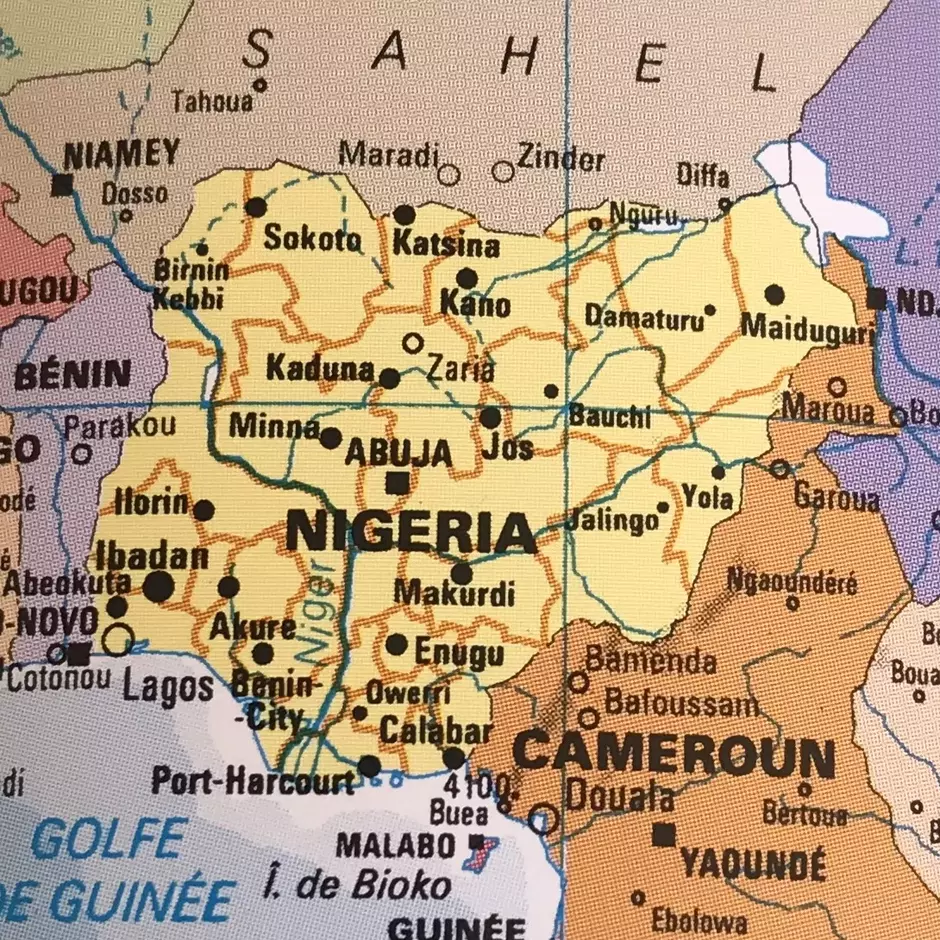In Nigeria, a total of 17,512 suspected cholera cases have been reported during the first half of this year. The ongoing epidemic threatens to exceed the death toll from previous years. Rapid response interventions targeting communities with high transmission rates are critical to control the epidemic.

An epidemic of cholera has been ongoing in Nigeria since the beginning of 2017. From January 2017 to December 2020, the country has reported 61,274 suspected cholera cases and 1,253 deaths to the World Health Organization (1–3). Large-sale epidemics occurred in 2017 (12,174 cases) and 2018 (45,037 cases), followed by a significant decline in case numbers in 2019 (2,486 cases) and 2020 (1,577 cases). Although cholera cases numbers were relatively low during the first year of the COVID-19 pandemic, Nigeria reported a high case fatality rate (CFR) of 5.5% in 2020 (4). With early and proper treatment, cholera CFRs should remain below 1% (5).
More recently, cholera case numbers have again increased in the country, with a total of 17,512 suspected cases and 392 deaths (CFR 2.2%) reported during the first half of this year (January 1 to July 4, 2021) (6). The ongoing epidemic threatens to exceed the death toll from previous years. Current outbreaks are concentrated in several northern states, with Bauchi State accounting for 69.5% of the country's reported cases as of July 4 (week 26) (6). Since the beginning of the year, children aged 5 to 14 represent 27.8% of cases (6).
The current situation is very worrying as the epidemic is widespread in the country, with 18 of 36 states reporting cholera cases during late June and early July (weeks 25-26) (6). During this two-week period, 3,650 suspected cholera cases and 47 deaths were reported nationwide, with the majority of cases reported in the states of Bauchi (2,535 cases) and Kano (572 cases) (6). During week 26, the epidemic has also spread to the states of Jigawa and Yobe, thereby increasing the risk of spread to Borno and Adamawa States as well as to the neighboring countries of Niger, Chad and Cameroon (6).
The Nigerian Centre for Disease Control is coordinating response efforts (7). However, security concerns hinder the response in some communities, and the health system, which has already been strained by the COVID-19 pandemic, continues to experience challenges providing adequate patient care during the ongoing cholera epidemic (7). Rapid response interventions targeting communities with high transmission rates are critical to control the epidemic.
References
- World Health Organization. Weekly epidemiological record annual report: Cholera 2017 [Internet]. 2018. Available from: https://apps.who.int/iris/bitstream/handle/10665/274654/WER9338.pdf?ua=1
- World Health Organization. Weekly epidemiological record annual report: Cholera 2018 [Internet]. 2019. Available from: https://extranet.who.int/iris/restricted/bitstream/handle/10665/330003/WER9448-eng-fre.pdf?ua=1
- World Health Organization. Weekly epidemiological record annual report: Cholera 2019 [Internet]. 2020. Available from: https://apps.who.int/iris/bitstream/handle/10665/334241/WER9537-eng-fre.pdf?ua=1
- UNICEF Regional Office for West & Central Africa (WCARO). Cholera Outbreaks in Central and West Africa : 2020 Regional Update - Week 1– 53 [Internet]. 2020 Dec. Available from: http://www.plateformecholera.info/attachments/article/942/WCA%20Cholera_Update_W1-53_2020.pdf
- World Health Organization. Cholera Factsheet [Internet]. 2021. Available from: https://www.who.int/news-room/fact-sheets/detail/cholera
- UNICEF Regional Office for West & Central Africa (WCARO). Cholera Outbreaks in Central and West Africa: 3- Week 1–26 [Internet]. 2021. Available from: http://www.plateformecholera.info
- Huhn N. Outbreak Observatory: Cholera outbreak in Nigeria [Internet]. Johns Hopkins University; 2021 Jul. Available from: https://www.outbreakobservatory.org/outbreakthursday-1/7/29/2021/cholera-outbreak-in-nigeria
